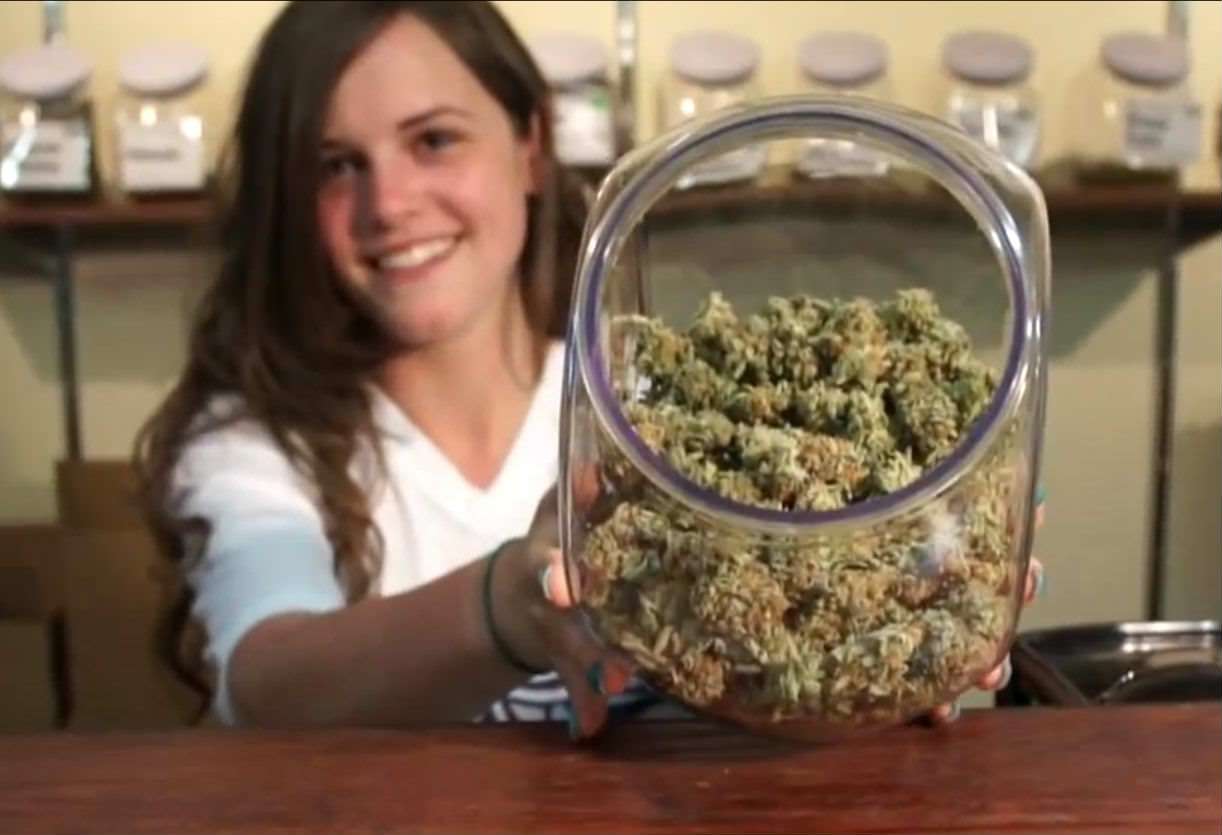Washington's Looming Pot Shortage

State-licensed pot stores are expected to start opening in Washington next month, but they won't have much pot to sell. As of Tuesday, the Washington State Liquor Control Board had issued 58 cultivation licenses; 2,585 applications from would-be growers were still pending. "There will be high demand and only a handful of people growing," says Scott O'Neil, whose store in Spokane is likely to be one of the first open for business in the state. "It's going to take at least a year to sort it out, get everybody up and running."
In addition to shortages, pot store customers will face taxes that are projected to make retail prices about 60 percent higher than they would otherwise be. Add to those factors the costs of establishing businesses that comply with state and local regulations, and the upshot, as I explain in my new Reason feature story about legalization in Washington, is that prices for legal pot will be substantially higher than current black-market prices.
How much higher? Seattle Post-Intelligencer reporter Jake Ellison, based on interviews with growers and retailers, estimates that "prices per gram will range from $15 to $25 (with some higher spikes and brief lows, possibly at $12 a gram)." Assuming a 30 percent discount for buying an entire ounce (which seems reasonable, based on prices charged by stores in Colorado), that range amounts to something like $300 to $500 per ounce. By comparison, the Price of Weed website, which collects data from cannabis buyers around the country, is currently reporting an average price of about $232 per ounce for high-quality marijuana in Washington. Looking at neighboring states, prices are a bit lower in Oregon ($209) and a bit higher in Montana and Idaho ($268 and $276, respectively). Another point of comparison: Denver dispensaries currently are charging medical customers around $10 per gram, 50 percent less than the low end of Ellison's range. Recreational customers pay more than that, but typically less than $15. Seattle dispensaries catering to patients charge $8 to $15 per gram.
In short, assuming Ellison's estimate is in the right ballpark, prices for marijuana sold by Washington's state-licensed stores could be nearly twice as high as the prices charged by dispensaries and black-market dealers. "We want to offer a wide variety of prices and quality that's affordable," one retail applicant tells Ellison. "I've had a lot of people tell me, 'We're just going to keep buying from the black market or from medical.' And that's what we don't want to see. I want to see this come out, and the retail be looked at, and [Initiative] 502 be looked at, as a good thing and a fair thing."
The LCB hopes to see state-licensed stores serving 25 percent of the market by the end of their first year (next summer, assuming licensing proceeds on schedule). Some critics (including me) see that goal as insufficiently ambitious, since supplanting the black market was one of I-502's big selling points. But given the meager initial supply and the hefty premium for legal marijuana, 25 percent may prove to be a pipe dream.
"The market, to really work and to really capture that 25 percent, will need to have consistent supply and quality supply," says Philip Dawdy of the Washington Cannabis Association, who has applied for a production license. "If you put up enough barriers for consumers, it discourages a certain percentage of them and sends them to another market. I think we're going to see that here. I think you'll see a lot of people in the beginning go to the stores just for the novelty of it. But at a certain point they're gonna say, 'Why the heck am I paying $20 a gram when Jimmy the pot dealer's gonna sell it to me for $13 a gram?' I think we're going to continue to have a black market for several years. I know pot dealers in my neighborhood in Seattle. They've all told me they're not worried a bit."


Show Comments (20)